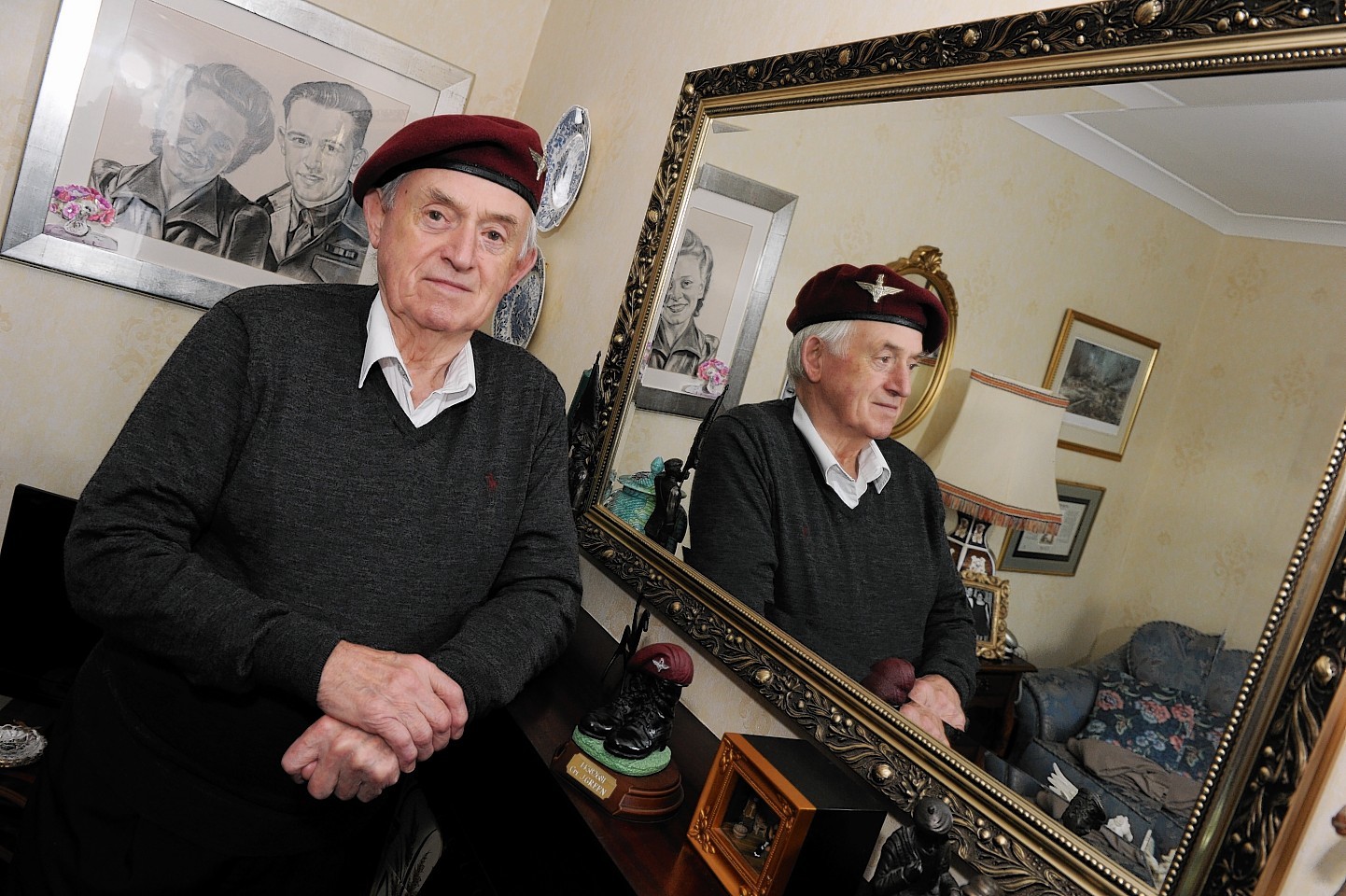He first made the journey on September 18 1944, dropping into the Netherlands from the skies through machine gun fire and the smoke of war.
And Aberdeen World War II veteran, James Green, will soon be reliving that death-defying drop into the Battle of Arnhem exactly 70 years after the day he first made it.
The former paratrooper will travel back to the soil where he fought and was later captured by Nazi troops on the 70th anniversary of the battle, during one of the war’s most famous allied defeats.
Mr Green was born in Aberdeen’s Woodside area to Mary and Alec Green, a road worker, attending Woodside School before working building Anderson shelters in the city.
During the war he was part of the British army’s 1st Airbourne division, under the command of Major general Roy Urquhart, which was tasked with securing the Rhine Bridgehead following the launch of Operation Market Garden.
After four days of fighting, with forces “scattered” across the region, and German troops closing in, Mr Green, an army medic, and several of his comrades were eventually captured in a building near Oosterbeek, and become German prisoners of war.
Mr Green, now 90, was invited to make the journey back to Holland with his son, Jim Green and grandson, Nick Green, for the five day commemoration of the battle with the Aberdeen branch of the Parachute Regimental Association.
Aged 18, Mr Green, was “called up” to the army, receiving his training as a para at Manchester’s Ringway airbase before Arnhem.
Mr Green said: “That was my first experience of action, I’d done about nine jumps before that one in Arnhem.
“I remember the dropping, there was patches of smoke and the Germans were firing up at us, but not a lot of machine guns could reach.
“They overshot the drop. Bits of shells was coming and hitting the planes. Most of the action took place by Oosterbeek.”
After several days, he said, the battle had been reduced to “basically being chased from one German path to the other German path”.
He added: “We got along to the houses and that’s where we was taken prisoner.”
Following their capture, Mr Green was sent from camp to camp through Poland, eventually to a “Stalag” near Lindberg, Germany, where he was put to work reconstructing damaged railway lines.
He said: “You was hungry all the time, you wake up in the middle of the night dying of hunger and just go back to sleep again.”
Mr Green was released eight months later and sent back to Britain.
